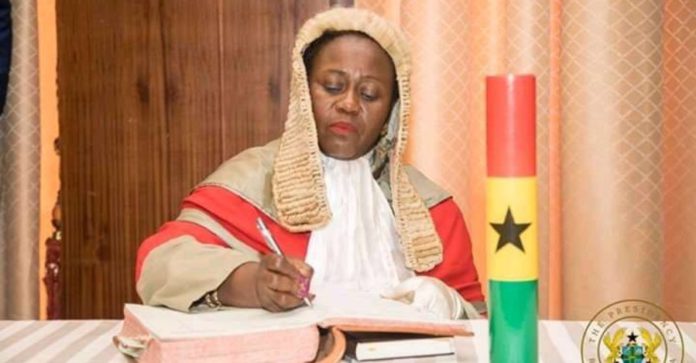Prominent constitutional lawyer Thaddeus Sory has launched a scathing critique of the Ghana Bar Association (GBA) following its latest comment in the Chief Justice suspension saga.
He accused the professional body of hypocrisy, legal ignorance, and double standards in its recent resolution demanding the revocation of the Chief Justice’s suspension and the withdrawal of a directive issued by the Acting Chief Justice.
In a statement released on April 29, Sory dismissed the GBA’s resolution, passed three days earlier on April 26, as “legally flawed and disrespectful,” questioning the very legal grounding of the Association’s position.
“The law is not in the bosom of the Bar,” Sory declared, challenging the GBA’s interpretation of constitutional provisions and its motives.
The Ghana Bar Association had resolved that:
i. The Acting Chief Justice should withdraw his directive “on the assignment of cases”; and
ii. The President should revoke the “suspension of the Chief Justice.”
According to the GBA, the President’s action was unconstitutional, as it lacked the requisite legal backing under Article 296 of the 1992 Constitution. But Sory was unrelenting in his response.
“These demands,” he wrote, “expose a troubling inconsistency in the Bar’s reasoning.”
He questioned the timing of the resolution and the lack of clarity from the GBA itself, noting, “Perhaps it’s no surprise that it took two clear days for the Ghana Bar Association’s resolution to finally see the light of day.”
Sory pointed out that the very power to assign cases, which the GBA now wants withdrawn, is tied not to the individual Chief Justice but to the office itself.
“By law and longstanding practice, the power to assign cases is an administrative function of the Chief Justice,” he explained.
“This function pertains to the office, not the individual currently holding the title.”
He stressed that the Acting Chief Justice, constitutionally recognised, has every right to perform that role.
“The suspended Chief Justice exercised that function while in office. Now, the Acting Chief Justice must do the same.”
In a damning rebuke, Sory accused the Bar of inconsistency and silence in the face of past abuses.
“The Bar’s position implies that the powers of the office are personal to the suspended Chief Justice,” he wrote.
“But when she was in office, the Bar raised no objections as she reassigned judges and altered case allocations.”
“Did they then suggest she rely on an algorithm or random generator to assign cases?” he asked, with biting sarcasm.
“Where was the Bar when the suspended Chief Justice issued unconstitutional and unlawful administrative guidelines and practice directions?”
According to Sory, some of those actions caused financial loss to the state—yet the Bar said nothing.
“And if the Bar claims ignorance, I wrote publicly on those very matters.”
On the constitutional question, Sory was unequivocal: “Article 146(10) of the 1992 Constitution clearly states: ‘… the President may, acting in accordance with the advice of the Council of State, suspend the Chief Justice.’”
He argued that “the word ‘may’ here does not grant discretion to act unilaterally. Once advised by the Council of State, the President is constitutionally bound to act—he must suspend.”
Sory challenged the Bar to pursue legal action if it truly believes it has a case, warning, however, that precedent is not on their side.
“If the Bar believes it has a case, let it go to court. But history is not on their side,” he stated. “Past attempts have yielded embarrassing defeats.”
Taking a parting swipe at the Bar’s self-assumed monopoly on legal interpretation, Sory reminded his colleagues: “Even outside of constitutional litigation, our respected colleague Ward Brew has repeatedly prevailed in court against the Bar. The law is not the sole preserve of the Bar’s interpretation.”
ALSO READ:

